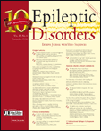A patient with two episodes of epilepsia partialis continua of the abdominal muscles caused by cortical dysplasia
ABSTRACT
Epilepsia partialis continua (EPC) is a rare form of focal motor status epilepticus. There is typically a predilection for facial and distal limb involvement, but rarely trunk or abdomen muscles may be affected. Rarely, EPC may also present in association with cortical dysplasia. In this report, we describe the clinical, neuroimaging and ictal electroencephalographic findings of a young woman presenting with persistent myoclonic twitches of the abdominal muscles that were considered to represent a rare manifestation of EPC due to cortical dysplasia. To the best of our knowledge, this is the first report of malformation of cortical development causing abdominal myoclonus. [Published with video sequences]




